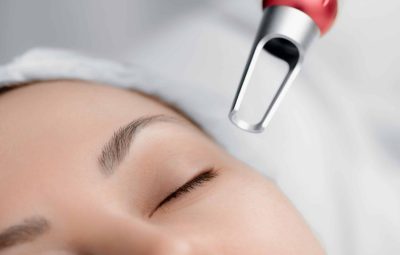Athletic performance is not just about talent or hard work—it’s about understanding the science behind your body’s needs. Nutrition, training, and recovery are key pillars that support athletes in achieving peak performance. But with busy schedules and evolving fitness trends, how do you maximise your potential while maintaining balance?
By focusing on targeted strategies for nutrition, hormone regulation, and training, athletes can ensure their bodies are equipped to perform at their best. Here’s a breakdown of how to optimise your approach.
Why Nutrition and Supplements Matter for Performance
The foundation of athletic success lies in fuelling your body effectively. For athletes, nutrition is more than just sustenance—it’s the energy source that powers every movement. The right balance of macronutrients (carbohydrates, proteins, and fats) ensures sustained energy, muscle recovery, and overall health.
Supplements also play a crucial role, particularly when dietary intake falls short of meeting the body’s demands. For example, protein powders and BCAAs (branched-chain amino acids) support muscle repair, while vitamins like D3 help maintain bone strength.
Hormone-regulating supplements have gained significant attention for their role in boosting testosterone, a key factor in athletic performance. When combined with a balanced diet and consistent training, these supplements can help optimise strength, endurance, and recovery.
The Role of Hormones in Athletic Performance
Hormones act as chemical messengers, regulating everything from energy levels to muscle growth. Testosterone, in particular, is vital for athletes as it directly influences strength, stamina, and muscle repair. However, factors such as stress, poor sleep, or inadequate nutrition can negatively impact testosterone production, hindering athletic progress.
Low testosterone levels can lead to fatigue, reduced muscle mass, and slower recovery times—obstacles no athlete wants to face. Maintaining balanced hormone levels is crucial for keeping the body in peak condition.
Natural methods, such as weightlifting and high-intensity interval training (HIIT), are known to stimulate testosterone production. Pairing these activities with a diet rich in zinc, magnesium, and healthy fats can further enhance hormonal health.
Top Foods and Supplements to Boost Testosterone Naturally
Nutrition is a powerful tool for supporting hormonal balance. Including specific foods in your diet can help naturally boost testosterone levels:
- Eggs: A versatile source of vitamin D, healthy fats, and protein, all of which are essential for hormone production.
- Leafy Greens: Spinach, kale, and Swiss chard are high in magnesium, a mineral linked to maintaining testosterone levels.
- Nuts and Seeds: Almonds, walnuts, and pumpkin seeds are excellent sources of healthy fats and zinc, both vital for testosterone synthesis.
- Fatty Fish: Salmon, mackerel, and sardines are rich in omega-3 fatty acids, which help regulate hormone production.
In addition to whole foods, testosterone boosters can provide extra support for athletes looking to enhance their performance. These natural supplements are designed to complement a balanced diet by promoting healthy hormone levels and improving recovery times after intense workouts.
Integrating Training, Diet, and Recovery for Optimal Results
Maximising performance requires a holistic approach that combines intense training, a supportive diet, and effective recovery strategies.
- Training: Strength-based workouts such as squats, deadlifts, and bench presses are excellent for building muscle mass and stimulating testosterone. Incorporating HIIT can enhance endurance and fat-burning while maintaining lean muscle.
- Diet: Aim to eat balanced meals that include lean proteins, complex carbohydrates, and healthy fats. For example, a post-workout meal could consist of grilled chicken, quinoa, and avocado to support muscle recovery and replenish glycogen stores.
- Recovery: Sleep is one of the most underrated tools in an athlete’s arsenal. Aim for 7–9 hours of quality rest each night, as this is when the body repairs itself and regulates hormone levels. Active recovery, such as light stretching or yoga, can also help reduce muscle soreness and improve flexibility.
When these elements work together, they create an environment where the body can grow stronger, recover faster, and perform better over time.
The Psychological Edge: Mindset and Performance
While nutrition and physical training are critical, an athlete’s mindset can often be the deciding factor in performance. Managing stress through techniques like meditation or mindfulness not only supports mental well-being but can also positively impact hormone balance.
Visualisation techniques, goal-setting, and maintaining consistency in routines can further enhance focus and determination. A strong mental approach complements physical preparation, ensuring athletes are ready to meet challenges head-on.
Unlocking Your Potential with the Right Tools
Performance isn’t about quick fixes or shortcuts—it’s about building a sustainable foundation. By understanding the science of nutrition and training, athletes can tailor their approach to suit their unique needs.
Through a combination of balanced meals, hormone-supporting strategies, and consistent recovery, athletes can optimise their performance and unlock their full potential. Whether you’re a seasoned competitor or just starting your fitness journey, these principles can help you perform better, recover faster, and achieve more.








